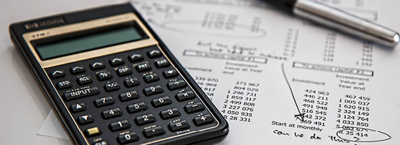
Creditworthiness means you can be trusted to pay back money that you borrow. Lenders will look closely at your loan track record to determine how creditworthy you are before approving your loan application.
Is your bank balance usually in the black or often overdrawn? Do you pay your bills on time or have you missed some instalments here and there? These are just some of the questions loan companies will consider when reviewing your application.
At Salad Money, we use Open Banking to assess applications from our customers - without focusing solely on your credit score. If you’re a key worker, you can apply online for a loan of up to £2,000 and quickly and easily.
So, what is creditworthiness? In this short guide, we’ll explain what it means and give you the tools you need to improve your rating - then maintain it. You may also want to research how to get a loan before applying.
What does creditworthiness mean?
Your creditworthiness is measured by your credit score. But how is this score determined? Paying your debts on time and not dipping into your overdraft will certainly improve your rating - but other factors will come into play too.
Let’s presume you’re taking out a big loan, like a mortgage. Your lender will want proof you can handle a large debt. Clearing your credit card each month and paying your bills on time probably won’t be enough to convince them.
Does this mean they’ll decline your application? Not necessarily. But you’ll still present a certain level of risk. This means your lender might cap how much you can borrow or charge a higher level of interest.
As you can see, the answer to ‘what is creditworthiness?’ isn’t straightforward. It all comes down to how lenders calculate their scores - so let’s take a closer look at how they do this.
How do lenders calculate creditworthiness?
Credit bureaus
Your lender will use a credit bureau like Experian or Equifax to build your risk profile.
This credit report will show your lender:
Any outstanding debts you have - and historical accounts spanning a ten year period
Which of those debts were paid off - and whether any instalments were late
Information about foreclosures, bankruptcies, or vehicle repossessions
If collection agencies were instructed to recover unpaid debts
Credit scoring
Credit scoring systems convert data in your file into a numeric scale that predicts whether you’ll default on a loan. This score is shown in a three-figure format ranging from 300-850. The higher your score, the less risk you pose.
More generally, lenders will want to see that:
You can manage different types of debt (i.e. car loan or mortgage)
you have a strong record of paying your bills on time
you don’t max out your credit each month
you’re not opening new accounts too often
What are the Five C's of creditworthiness?
Lenders use the Five C’s systems to decide if an applicant is creditworthy. When considering the question ‘what is creditworthiness?’, it’s important to understand how this system is used by loan providers to review applications.
The Five C’s are as follows:
Capacity - how much debt do you owe versus your income?
Capital - how much money do you have at the point of application?
Collateral - what assets can your lender use as security for the loan?
Character - what does your credit file say about you as a person?
Conditions - what is the loan for, how much is it, and what’s the interest rate?
Although the Five C’s is a recognised system used by lenders, emphasis on each of its points will vary depending on which provider you use and the type of loan you’re applying for.
A bank may place more importance on assets and how much cash you have in your accounts. On the other hand, an online lender will probably focus more on your credit score.
How do you maintain creditworthiness?
If you’re not creditworthy, how can you improve your score well enough that lenders will lend to you?
To improve your credit score:
Try not to exceed the limit on your credit cards and keep your balances low
If you do have credit cards, don’t close them - instead, downgrade them and switch to a lower APR
Avoid defaulting on monthly bills - like gas, electric, or internet
Only open new lines of credit if you have no other choice
By following these simple guidelines, you’ll be able to build a stronger credit history - resulting in a lower risk profile that lenders will review favourably.
What if I don't have good creditworthiness?
Is your credit score accurate?
The first thing you need to do is to check your file and find out why your score is low. If there are inaccuracies in your report, you can request an amendment by writing to the credit bureau that holds your information.
To find out which bureau to write to, you’ll need to speak to your lender first - as they will hold information about this company on file. Remember, you don’t have any right to credit. So your lender could still refuse your application - even if your complaint is upheld.
Were you unable to repay a debt due to illness, or because you lost your job? Explain this to the credit bureau you’re dealing with and give examples - as they won’t be able to help unless you provide evidence. They’ll be required to provide a response within 28 days either way.
Maybe you don’t have a credit history
The question ‘what is creditworthiness?’ must be preceded by ‘do I have a credit history?’ That’s because lenders can only make decisions based on hard data. If you’ve never borrowed money before, how will a provider know whether to trust you?
To fix this problem, you could get a credit-builder card. These are for people with minimal, little, or poor credit history. You won’t be able to borrow much and interest rates are higher - but you’ll be able to gradually improve your credit rating and start applying for loans. If you don’t fancy doing this, look out for lenders that rely on open banking rather than credit score to evaluate your financial situation.
Our take on the ‘what is creditworthiness?’ question is slightly different
At Salad Money, we won’t use your credit score against you. Instead, you can share financial banking data safely and securely - so we can assess your current ability to pay off the loan you’re applying for.
The system we use is called Open Banking, you’ll be able to choose which information you share with us - and can withdraw your consent at any time. The best thing about Open Banking is that it relies on your current financial situation, rather than penalising you for poor credit decisions you made years ago.
Applying for one of our new loans doesn’t impact your credit score. We use Open Banking in our initial assessment. If successful, we report your loan to the CRA’s (Credit Reference Agencies). Your credit score won’t hold you back from being eligible.
If you are employed and are struggling to get a loan, apply online now. Or, if you have a question, contact a member of our friendly team.



